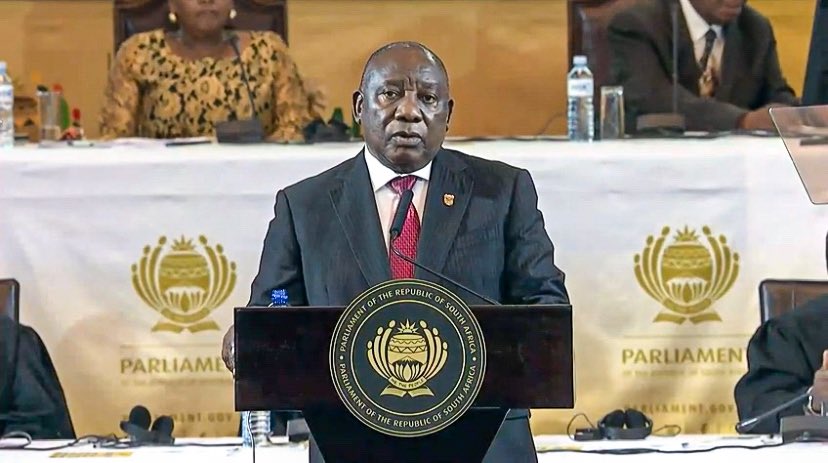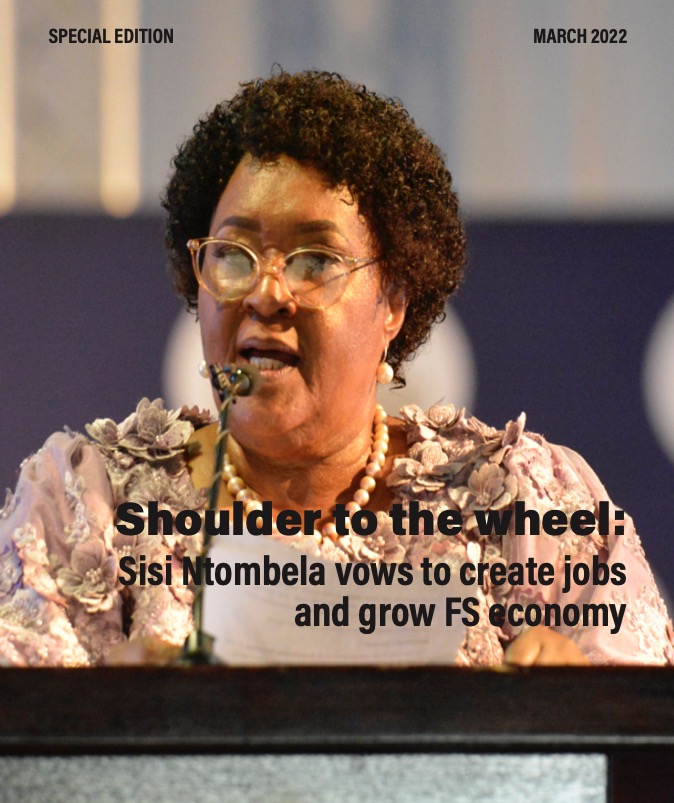Inside Politics Reporter
President Cyril Ramaphsa kicked off his State of the Nation Address (Sona) by narrating a story of the first 30 years of our democracy that he said can be best told through the life of a child called Tintswalo born at the dawn of freedom in 1994.
Tintswalo – democracy’s child – grew up in a society that was worlds apart from the South Africa of her parents, grandparents and great-grandparents, the President told Parliament.
“She grew up in a society governed by a constitution rooted in equality, the rule of law, and affirmation of the inherent dignity of every citizen.
“Tintswalo, and many others born at the same time as her, were beneficiaries of the first policies of the democratic state to provide free healthcare for pregnant women and children under the age of six.
“Tintswalo’s formative years were spent in a house provided by the state, one of millions of houses built to shelter the poor.
“Tintswalo grew up in a household provided with basic water and electricity, in a house where her parents were likely to have lived without electricity before 1994.
“Tintswalo was enrolled in a school in which her parents did not have to pay school fees, and each school day she received a nutritious meal as part of a programme that today supports 9 million learners from poor families,” he said.
The President then spelled out how the democratic state provided a child support grant to meet her basic needs. This grant, together with other forms of social assistance, continues to be a lifeline for more than 26 million South Africans every month.
“With this support, Tintswalo – democracy’s child – was able to complete high school.
“Through the assistance of the National Student Financial Aid Scheme, Tintswalo attended one of our TVET colleges and obtained a qualification.
“When Tintswalo entered the world of work, she was able to progress and thrive with the support of the state’s employment equity and black economic empowerment policies.
“With the income she earned, she was able to save, to start a family, to move into a better house, and to live a better life.
“This is the story of millions of people who have been born since the dawn of our democracy. But it is only part of the story,” he said.
However, Ramaphosa pointed out, despite the remarkable achievements of the last 30 years as told through Tintswalo, many of democracy’s children still face great challenges.
He said millions of young people aged 15 to 24 years are currently not in employment, education or training. There are many who have a matric, a diploma or a degree who cannot find a job, or do not have the means to start a business, he said.
“While economic growth is essential to reduce unemployment, we cannot wait to provide the work that many of democracy’s children need.
“As a government we have taken steps to address the youth unemployment challenge.
“Three years ago, building on the success of the Expanded Public Works Programme, we launched the Presidential Employment Stimulus.
“Through this programme, we have created more than 1.7 million work and livelihood opportunities.
“Through the stimulus, we have placed more than 1 million school assistants in 23,000 schools, providing participants with valuable work experience while improving learning outcomes.
“Through the Presidential Youth Employment Intervention, we established SAYouth.mobi as a zero-rated platform for unemployed young people to access opportunities for learning and earning.
“Over 4.3 million young people are now engaged on the network and 1.6 million have so far secured opportunities.
“We have, working together with the National Youth Development Agency, set up a number of initiatives to provide opportunities for young people including the National Youth Service and the Youth Employment Service.
“These programmes matter because work matters to people. The NYDA has played a key role in assisting a number of young people to start their own businesses”.
Having a job does not only provide an income – it is fundamental to people’s sense of self-worth, dignity, hope, purpose and inclusion.
From the depths of deprivation and inequality, we have worked over 30 years to ensure that all South Africans have an equal chance to prosper.
It is not enough to recognise the injustices of the past; we need to correct them.
INSIDE POLITICS



